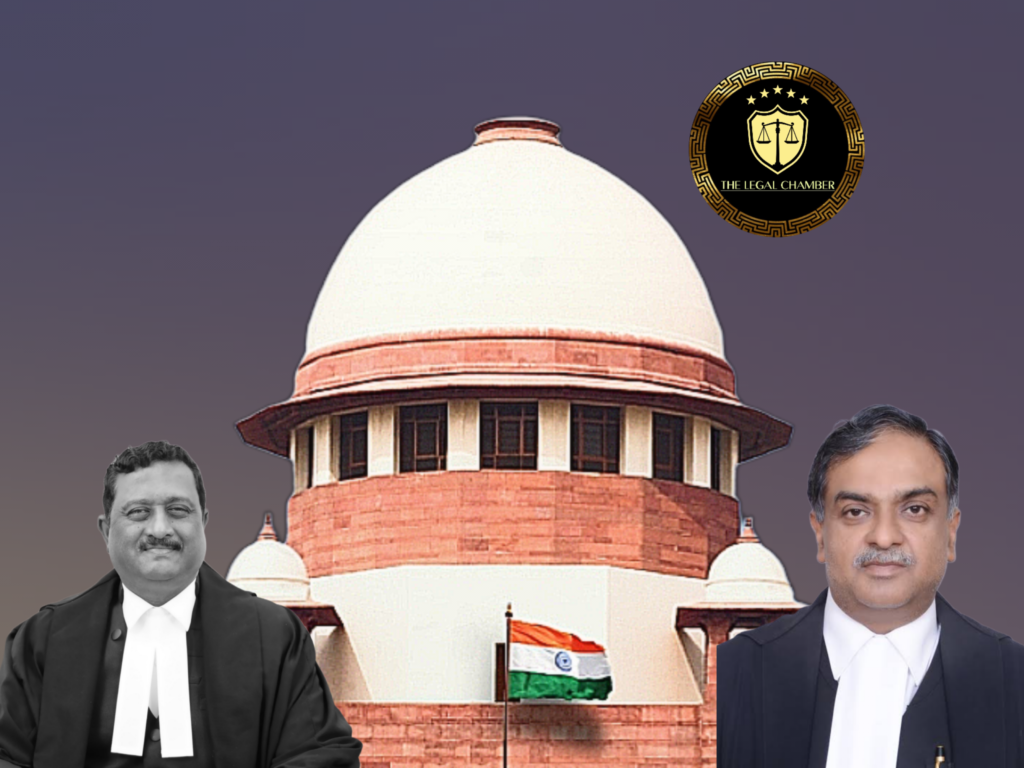
The Supreme Court upheld the NCDRC’s order directing execution of a sale agreement for an alternate flat under MOFA 1963, while modifying financial liabilities. It penalized the builder for violating NCDRC’s interim order by alienating the original flat, and balanced equities by capping the buyer’s dues at ₹1.4 crore (including taxes/admitted charges) while waiving contested interest/penalties. The judgment enforced consumer rights under MOFA while considering the builder’s maintenance costs, and mandated registration within two months of payment. The Court exercised its discretionary powers under Article 142 to resolve the 12-year dispute finally.
Facts Of The Case:
The case involves a dispute between Jawala Real Estate Pvt Ltd (later amalgamated with Macrotech Developers) and homebuyer Haresh regarding a 3BHK apartment in Lodha’s ‘Blue Moon’ project at Worli, Mumbai. In 2013, Haresh paid ₹92.5 lakh as advance (total consideration: ₹4.65 crore) but the builder cancelled the allotment within months for non-payment of balance. Haresh filed a complaint before NCDRC, which in 2016 set aside the cancellation and directed execution of sale agreement under MOFA 1963. During proceedings, the builder violated NCDRC’s interim order by selling the original flat (No. 6403) in 2014. The Supreme Court in 2018 allowed substitution with an alternate flat (No. 6503) but disputes persisted over documentation and dues.
The builder sought full payment (₹4.96 crore including 9% interest and charges) while Haresh contested most charges citing MOFA provisions. After failed mediation attempts and multiple hearings, the Supreme Court in 2025 directed Haresh to pay ₹1.4 crore (covering taxes/admitted charges) as final settlement, waiving disputed amounts. Possession was handed over in February 2025, with the Court ordering registration within two months of payment. The 12-year litigation highlighted builder non-compliance with consumer forums and documentation obligations under MOFA.
Procedural History:
The case originated in 2013 when the respondent-homebuyer filed Complaint No. 210/2013 before the NCDRC after the builder cancelled his flat allotment. The NCDRC initially granted interim protection on 19.11.2013, restraining third-party creation of rights, which the builder violated by selling the flat in 2014. On 17.02.2016, the NCDRC allowed the complaint, directing execution of sale agreements under MOFA 1963 and imposing penalties. The builder’s modification plea for substituting the sold flat was rejected by NCDRC on 16.12.2016 for contemptuous conduct. The matter reached the Supreme Court through Civil Appeal No. 3294/2018, where on 20.03.2018, the Court allowed substitution of the flat but retained NCDRC’s core directions.
Subsequent non-compliance led to Miscellaneous Application No. 2426/2018, with the Court attempting mediation (2018-2024) before finally adjudicating financial liabilities. The procedural journey saw multiple interim orders regarding payment deposits (09.2024), possession transfer (12.2024), and culminated in the final judgment on 13.05.2025, resolving the 12-year litigation through a balanced settlement under Article 142.
Read Also: Supreme Court Ends Pension Discrimination for Merged Employees
Court Observation:
The Supreme Court made several critical observations in its judgment. It strongly condemned the builder’s conduct in willfully violating the NCDRC’s 2013 interim order by selling the disputed flat during pending proceedings, noting this “contemptuous act” prolonged litigation for 12 years. The Court emphasized that builders cannot unilaterally cancel allotments after accepting substantial payments (₹92.5 lakh here) without following due process under MOFA 1963. It upheld consumer rights to specific performance under Section 6 of MOFA but balanced equities by considering the builder’s maintenance costs for the alternate flat.
The judgment clarified that while interest charges for delayed payments are permissible under MOFA, they cannot be imposed arbitrarily – capping liabilities at ₹1.4 crore after accounting for the buyer’s withheld balance payment (₹3.72 crore). Importantly, the Court observed that builders must provide complete documentation (carpet area, approvals) before demanding payments, noting the appellant’s failure to do so vitiated their claims for additional charges. The ruling sets precedent on enforcing NCDRC orders while using Article 142 powers to achieve equitable resolutions in protracted real estate disputes.
Final Decision & Judgement:
The Supreme Court delivered a balanced final judgment that partially allowed the Miscellaneous Application while protecting consumer rights under the Maharashtra Ownership of Flats Act (MOFA), 1963. The Court directed the respondent-homebuyer to pay a consolidated amount of ₹1.40 crore (covering admitted charges of ₹17.53 lakh, taxes of ₹23.18 lakh, and ₹1 crore towards interest/other dues) within eight weeks as full and final settlement up to the possession date (05.02.2025). This amount was significantly reduced from the builder’s claim of ₹4.96 crore, with the Court expressly waiving disputed charges like delayed payment penalties and excessive maintenance fees. The judgment mandated execution of the sale agreement within two months of payment, with registration expenses to be borne by the homebuyer. Crucially, it upheld the NCDRC’s original relief of specific performance through the alternate flat (No. 6503) while penalizing the builder’s misconduct through financial disallowances. The ruling lifted structural modification restrictions but preserved the buyer’s liability for future maintenance charges. By invoking Article 142, the Court achieved finality in the 12-year dispute, setting precedent on: (1) enforcing consumer forum orders against builder non-compliance, (2) rationalizing delayed payment liabilities in stalled projects, and (3) balancing equities when granting specific performance in cases of builder default. The judgment reinforces MOFA’s consumer protections while recognizing practical challenges in long-delayed real estate transactions.
Key Directions:
-
₹1.4 crore payment by homebuyer within 8 weeks (full settlement till possession)
-
Sale deed execution within 2 months of payment
-
Builder’s ₹3.72 crore deposit released immediately
-
Future charges post-possession to be borne by homebuyer
-
Structural modification ban lifted
Case Details:
Case Title: Jawala Real Estate Pvt Ltd & Anr. vs. Haresh Citation: (2025) INSC 669 Civil Appeal No: Civil Appeal No. 3294 of 2018 Date of Judgment: May 13, 2025 Judges/Justice Name: Justice Vikram Nath (Authoring Judge) & Justice Prasanna B. Varale (Concurring Judge)
Download The Judgement Here